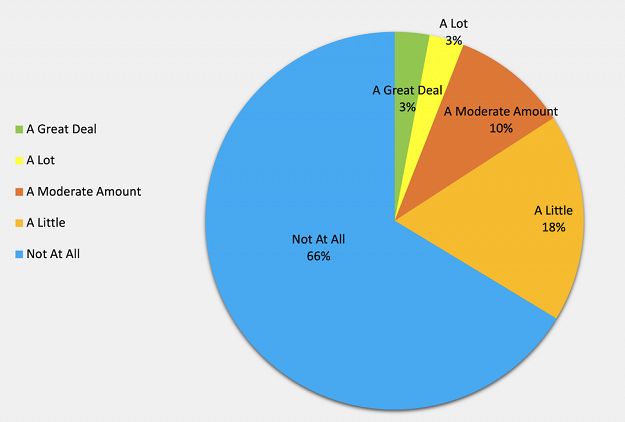Is the US headed for another for another Civil War? It’s worrying that we even have to ask the question, but the possibility has been seriously by the Washington Post, Foreign Policy and the Brookings Institution. Even director Ken Burns believes that the country is in a pre-Civil War environment.
An infamous feature of civil conflict is that it turns brother against brother and children against their parents. Fortunately, that’s not the norm in America. According to new findings from the Institute for Family Studies, most American families are not being torn apart by politics. Drawing on data from the American National Election Study, Samuel J. Abrams points out that when asked how much political differences have hurt their relationships with family members 66% of respondents said “not at all” and a further 18% no more than “a little”. Just 6% said “a great deal” or “a lot”.

Of course, that still means that 1 in 6 Americans report more than a little political damage to their family relationships. Some families will find any excuse to shout at each other, nevertheless it would be deeply unhealthy if political rows became a growing trend in familial bust-ups.
As for the majority of Americans who don’t row with their relatives about politics, might that be because most of them just don’t care? Probably not, because, as Abrams says, “the vast majority of strong Democrats (79%) and of strong Republicans (85%) report little to no impact” on their family relationships.
But, hang on, could that mean that the country is now so polarised that families have become political monocultures? This would require further research, but differences in party affiliation between the generations (and, to a lesser extent, the sexes) would suggest many if not most families are politically mixed.
That would be a good thing, because research suggests that political intolerance is associated not with ignorance of ‘the facts’, but with not knowing people who think differently from you.







Join the discussion
Join like minded readers that support our journalism by becoming a paid subscriber
To join the discussion in the comments, become a paid subscriber.
Join like minded readers that support our journalism, read unlimited articles and enjoy other subscriber-only benefits.
SubscribeJust like here in the UK the disconnect between the media and politics with the general population is vast. Quite heartening though.
“That would be a good thing, because research suggests that political intolerance is associated not with ignorance of ‘the facts’, but with not knowing people who think differently from you.”
My political intolerance of the hard left is associated with the strong correlation of its attempted implementations with terror, torture, famine, and mass murder.
I mean, unlike journalists, most people have real lives and real jobs and responsibilities they need to get done.